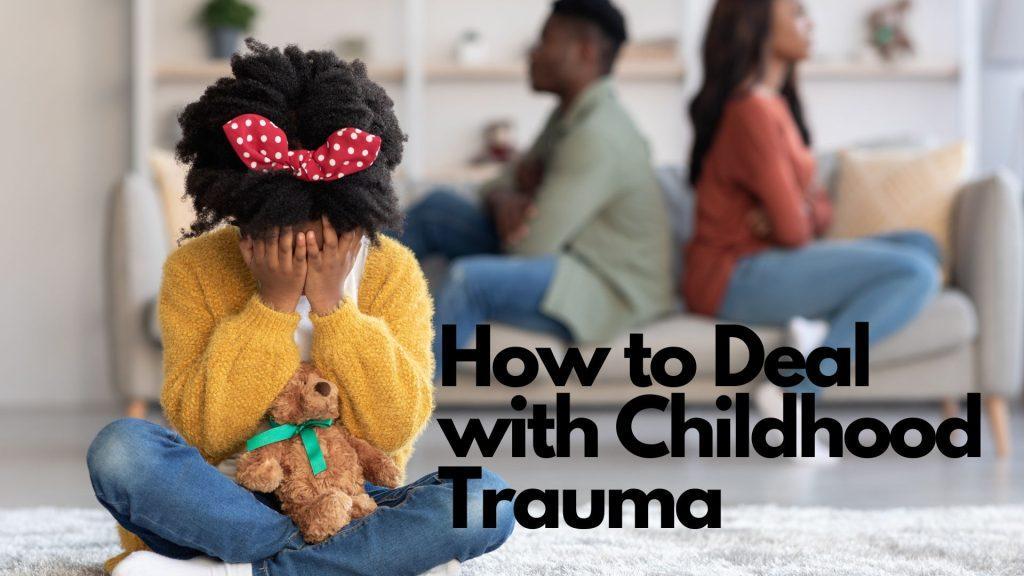
Here are ten alarming signs of childhood trauma that we should not ignore. People are still dealing with pain from their past as evidenced by anxiety, depression, and poor self-esteem. The good news is that it can heal. In this complete guide, we will cover the symptoms, causes, and strategies for effectively coping with childhood trauma.
What is Childhood Emotional Neglect?
(CEN) occurs when a child’s emotional needs are consistently ignored. These experiences can include neglect and abuse, witnessing violence or the loss of a loved one.
The most common causes of childhood trauma include:
Physical, emotional or sexual abuse
Neglect and abandonment
Divorce or separation of parents
Witnessing domestic violence
Loss of a parent or caregiver
Bullying or social rejection
Exposure to disasters occurring in nature or accidents
What are the signs and symptoms of childhood trauma?
Symptoms of childhood trauma manifest differently in people. Some of the most telling symptoms include:
Feelings of worthlessness and low self-esteem
Difficulty in building relationships and issues with trust
Chronic anxiety and depression
Flashbacks or nightmares
Addiction or self-harming behaviors
The inability to manage emotional ups and downs
10 Ways to Recover from Childhood Trauma
Acknowledge Your Trauma
To heal you have to understand that this is something that impacted you. Dealing with your trauma and focusing on it is not the same as accepting it because acceptance gives you- a sense of understanding yourself better and taking steps for healing from all you have been through in your life.
Seek Professional Therapy
A trained therapist or counselor can help you work through your feelings. Cognitive Behavioral Therapy (CBT), Eye Movement Desensitization and Reprocessing (EMDR), and trauma-focused therapy are all effective childhood trauma treatment therapies.
Practice Self-Compassion
Many survivors of trauma feel at fault for what happened. Practice self-compassion and remind yourself that you did not cause the trauma.
Writing down your thoughts and feelings
Here are some more specific suggestions:Engaging in creative activities like painting or music
Try spending 5-10 minutes doing deep breathing and/or meditating
Build a Support System
Being with supportive friends and family members can also help.
Set Boundaries
Trauma survivors often have difficulty with saying no and enforcing boundaries. Know how to shield your emotional health by avoiding toxic people and toxic places.
Identify your interests to help improve your self-esteem
And when you do, you will need positive affirmations and self-love tasks to rebuild confidence. It is time to move a head and forward with anything on your mind.
Adopt a Healthy Lifestyle
Following these up with a healthy meal is a great way to improve your mental health. Below are some good habits that need to be developed:
Regular exercise, be it yoga, walking or weight training
A balanced diet full of vitamins and minerals
Getting enough sleep to give your brain a chance to heal
Embrace Mindfulness and Relaxation Techniques
Mindfulness is beneficial for trauma survivors to remain in the present. Deep breathing, progressive muscle relaxation and guided meditation are techniques that can decrease anxiety and stress.
Extend Compassion and Let Go (If You’re Ready)
It is up to you whether to forgive or not. But learning to forgive can liberate us from the weight of past trauma. This does not mean accepting what happened, it means letting go of the emotional grip it has on you.
Final Thoughts
It requires time and patience to work past childhood trauma. It is a journey, not a race. With time, support and healthy coping skills, you can continue to push through. And remember that you’re not alone and it’s never too late to heal.
If you are finding yourself in a bad way, please speak to a mental health professional, it may help you on your journey to recovery.

Awesome